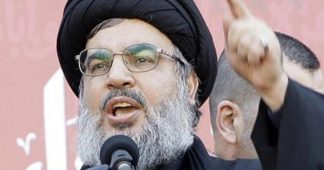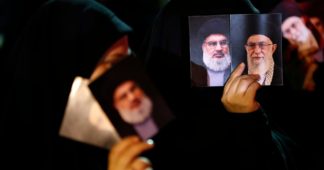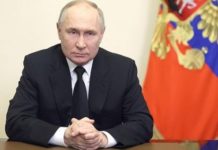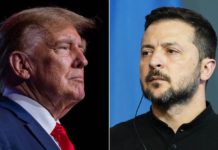Israel has killed Hezbollah leader Hassan Nasrallah, who defended Lebanon’s sovereignty, helped defeat ISIS and Al-Qaeda, protected Christians, and fought against Israeli colonialism and occupation.
By Ben Norton
Sep 29, 2024
Israel has assassinated Hassan Nasrallah, the secretary-general of the Lebanese anti-colonialist, Islamic-nationalist movement Hezbollah.
Under Nasrallah’s leadership, Hezbollah defended Lebanon’s sovereignty. The movement was itself born out of the resistance against Israel’s illegal invasion and military occupation of southern Lebanon in the 1980s and ‘90s.
Although the US government claims Hezbollah is a so-called “terrorist” organization, only a small number of countries on Earth recognize it as such.
In fact, Hezbollah’s political arm is a registered party, and has a dozen representatives in Lebanon’s democratically elected parliament.
(The United States also included South Africa’s anti-apartheid leader Nelson Mandela on its supposed “terrorist” list until 2008 — well after he became president of the post-apartheid nation.)
Israel’s colonial war on Lebanon
Israel killed large numbers of Lebanese civilians in the assassination of Nasrallah, flattening six high-rise buildings in the capital Beirut, in a US-backed operation.
Far-right Prime Minister Benjamin Netanyahu ordered the attack while he was in New York, addressing the United Nations General Assembly (UNGA).
When Netanyahu was introduced at the UN, large numbers of foreign diplomats walked out in protest. There was so much pandemonium in the chamber that the UNGA president shouted “Order, please!” and banged a gavel to try to silence the protesters.
Netanyahu ended up speaking to a room that was mostly empty. But in his remarks, he illustrated his colonial intentions, using maps that completely erased Palestine and showed the occupied West Bank and Gaza as part of Israel.
While Netanyahu was at the UN, the Israeli regime was brutally bombing Lebanon, killing nearly 500 people in one day.
Many observers have wondered what Israel’s goals are in Lebanon.
Israel’s minister of diaspora affairs, Amichai Chikli, made it clear in a Twitter/X post. He asserted that Lebanon, Syria, and Iraq are not sovereign countries, and he insisted that Israel should colonize southern Lebanon, just like it did throughout the 1980s and ‘90s.
Major Israeli newspaper the Jerusalem Post published an article arguing that Lebanon is “part of Israel’s promised territory”, and should therefore be colonized.
Israel’s education minister, Yoav Kisch, similarly vowed on Israel’s Channel 14 that “Lebanon will be annihilated”, and “Lebanon as we know it will not exist”. (Israeli human rights groups have counted more than 50 times that Channel 14 has explicitly called for genocide against Palestinians in Gaza since October 2023.)
While defending Lebanon’s territorial integrity and sovereignty, Hezbollah had always linked its own national-liberation struggle to that of the Palestinian people, refusing to compromise with Israeli colonialism — and the US empire that has sponsored it.
For its part, the US government has adamantly defended Israel and backed its war of aggression on Lebanon.
President Joe Biden and Vice President Kamala Harris both released statements praising Tel Aviv for murdering Nasrallah.
The Biden-Harris administration has sent Israel at least $18 billion in military aid, including many of the bombs and missiles that are being used to massacre civilians in Gaza and Lebanon.
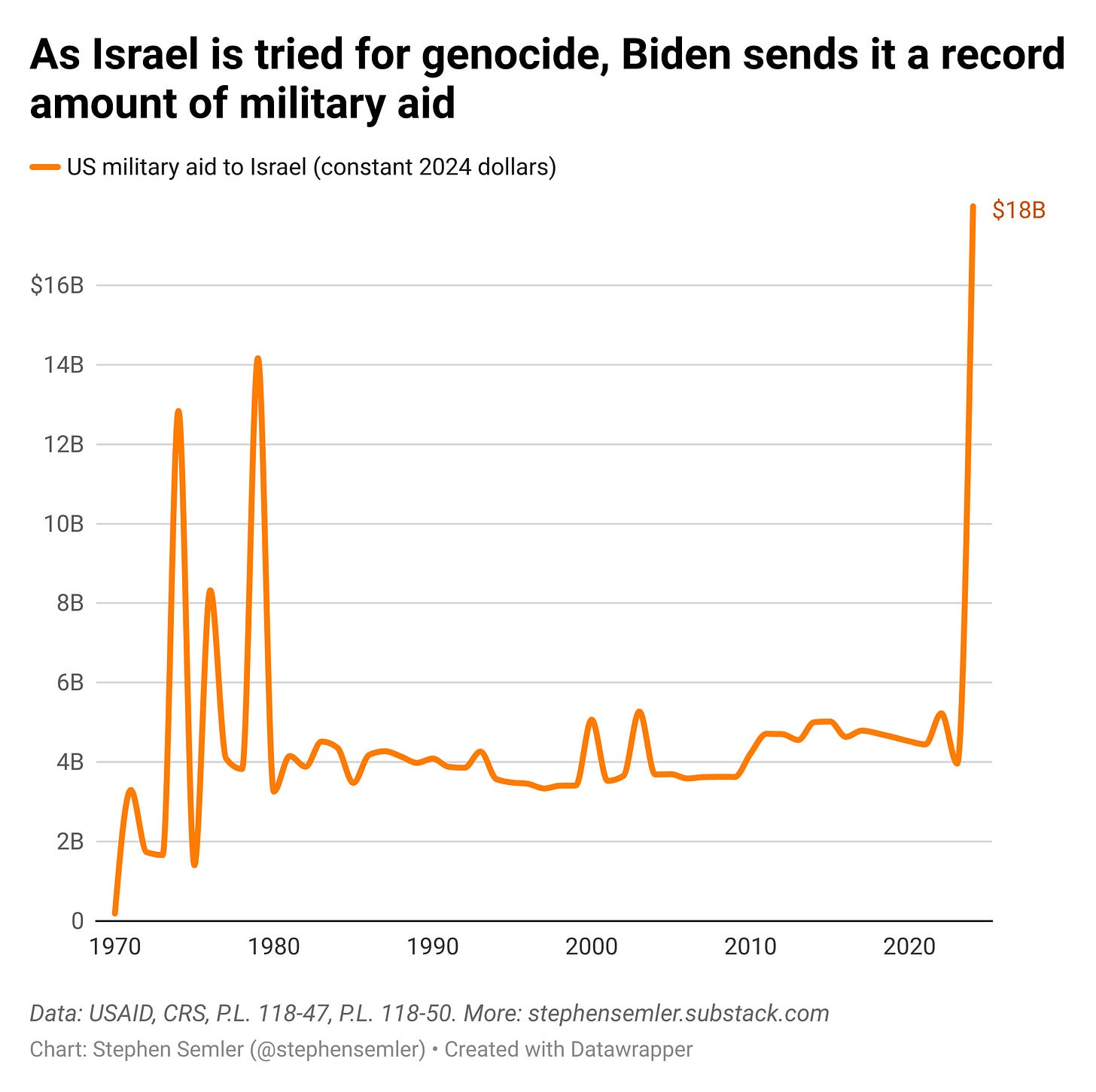
Hezbollah helped defeat ISIS & Al-Qaeda — while USA & Israel were allied with terrorists
In the past decade, Hezbollah played a key role in defeating ISIS and Al-Qaeda, while these extremist Salafi-jihadist death squads were de facto allies of the United States and Israel in their colonial war on Syria.
In 2012, US Secretary of State Hillary Clinton’s top aide Jake Sullivan wrote her an email admitting, “AQ is on our side in Syria”.
When Hezbollah and its allies Syria and Iran fought against Al-Qaeda, the terrorist group was on Washington’s side.
(President Joe Biden subsequently selected Sullivan for the powerful position of US national security advisor.)
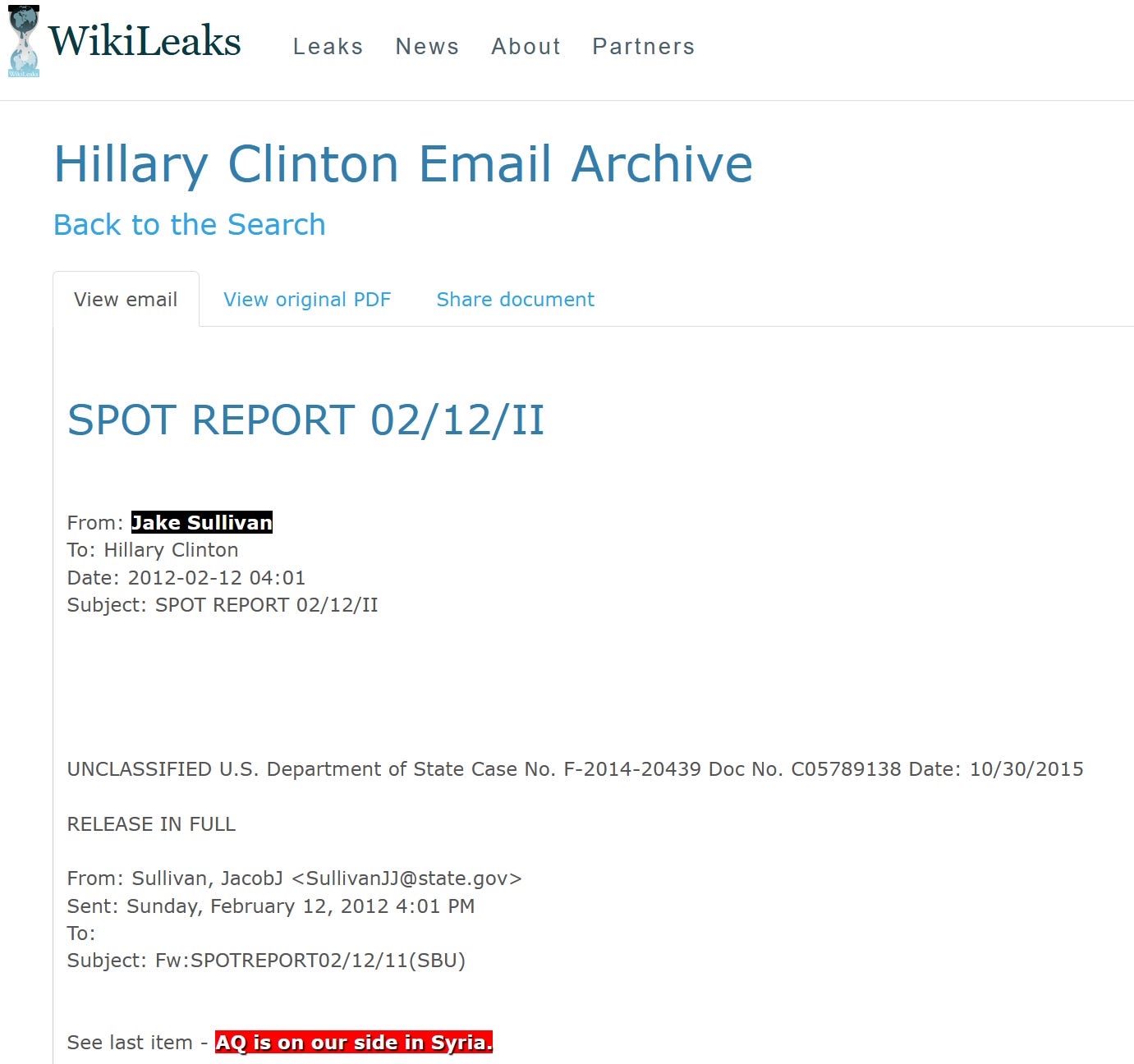
In Lebanon, Hezbollah was also allied with many Christian groups, and protected them from the extremists in ISIS and Al-Qaeda.
The Christian Science Monitor noted in a 2013 report how, “In a Christian home in a Shiite suburb of Beirut, images of Hezbollah leader Hassan Nasrallah share mantel and wall space with the Virgin Mary”.
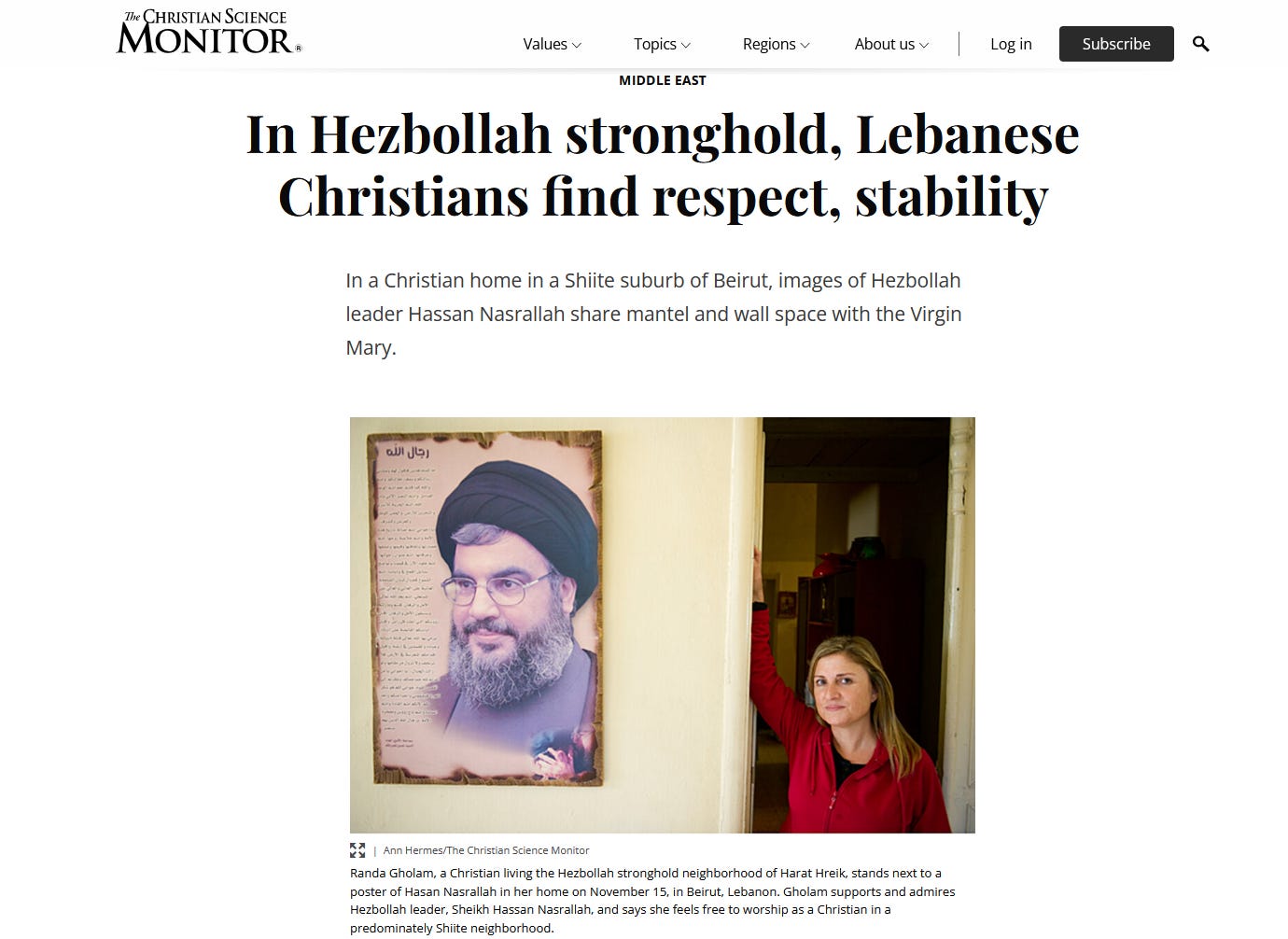
Meanwhile, where did the genocidal fascists in ISIS get their weapons from? Well, the United States — as even Amnesty International and CNN acknowledged.
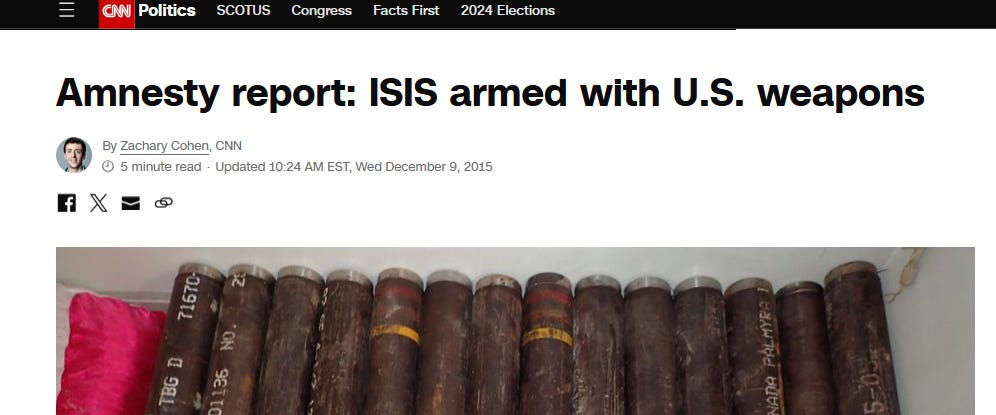
As for Israel, genocidal ISIS fascists accidentally attacked its forces one time, but then promptly asked Tel Aviv for forgiveness.
Former defense minister Moshe Ya’alon admitted in 2017 that ISIS had apologized to Israel.
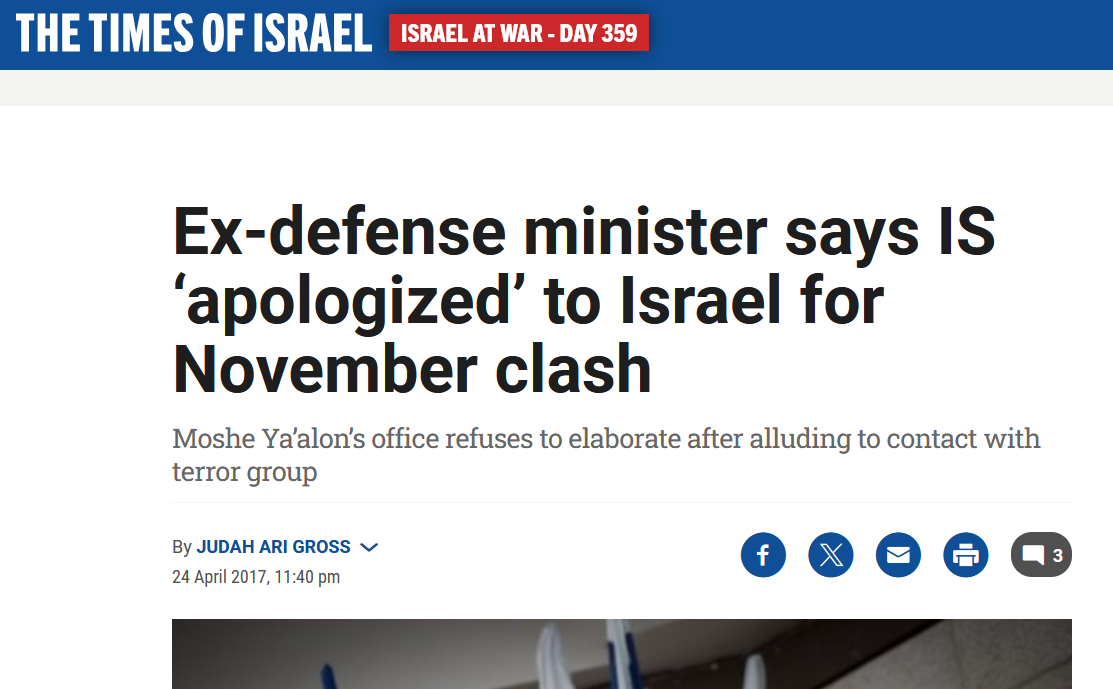
Israel also treated wounded Al-Qaeda fascists in its hospitals, before sending them back to Syria to fight a proxy war against the West’s enemies, the Jerusalem Post reported in 2015.
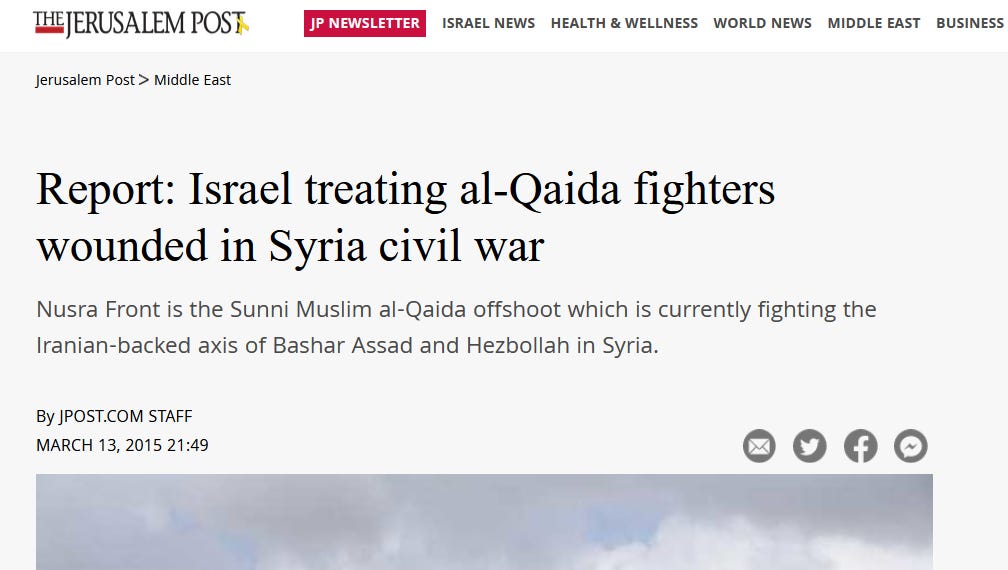
Hezbollah had always opposed the Salafi-jihadist fanatics in Al-Qaeda. This was not merely a result of the proxy war in Syria.
During Israel’s murderous war on Lebanon in 2006, the Washington Post published an interview with Nasrallah, whom it described as “a cross between Ayatollah Khomeini and Che Guevera, an Islamic populist as well as a charismatic guerrilla tactician”.
Nasrallah forcefully condemned Al-Qaeda and the 9/11 terrorist attacks, and he emphasized that Hezbollah attacks military targets, not civilians.
Hezbollah defended Christians, supported interfaith dialogue, distinguished between Judaism & Zionism
Given the important role Hezbollah played in defeating ISIS and Al-Qaeda, while defending Lebanon’s sovereignty, several prominent Lebanese Christian leaders issued statements honoring Nasrallah after his death.
Lebanon’s Christian ex-President Michel Aoun condemned the “Israeli aggression” against his country and wrote that, with the passing of his “honorable friend” Nasrallah, “Lebanon loses a distinguished and honest leader who led the national resistance on the paths of victory and liberation”.
Despite US-Israeli disinformation claiming that Hezbollah is “anti-Semitic”, the resistance movement promoted interfaith dialogue, and was careful to distinguish between Judaism as a religion and Zionism as a political, colonial movement.
Even the vehemently anti-Palestinian, pro-Israeli neoconservative US group MEMRI published a report on a Beirut conference in 2005 in which a Lebanese member of parliament from Hezbollah’s political party, Abdallah Qusseir, emphasized:
““Hizbullah has never been against religions. Hizbullah supports all religions, it supports interfaith dialogue, and it has no problem with any religion. Hizbullah considers Zionism to be the enemy, not the Jews as a people or a religion”.
In the following video and podcast, Geopolitical Economy Report editor Ben Norton explains who Hassan Nasrallah really was, and dispels some of the myths and disinformation spread by the US government and its stenographers in the corporate media.
We remind our readers that publication of articles on our site does not mean that we agree with what is written. Our policy is to publish anything which we consider of interest, so as to assist our readers in forming their opinions. Sometimes we even publish articles with which we totally disagree, since we believe it is important for our readers to be informed on as wide a spectrum of views as possible.
